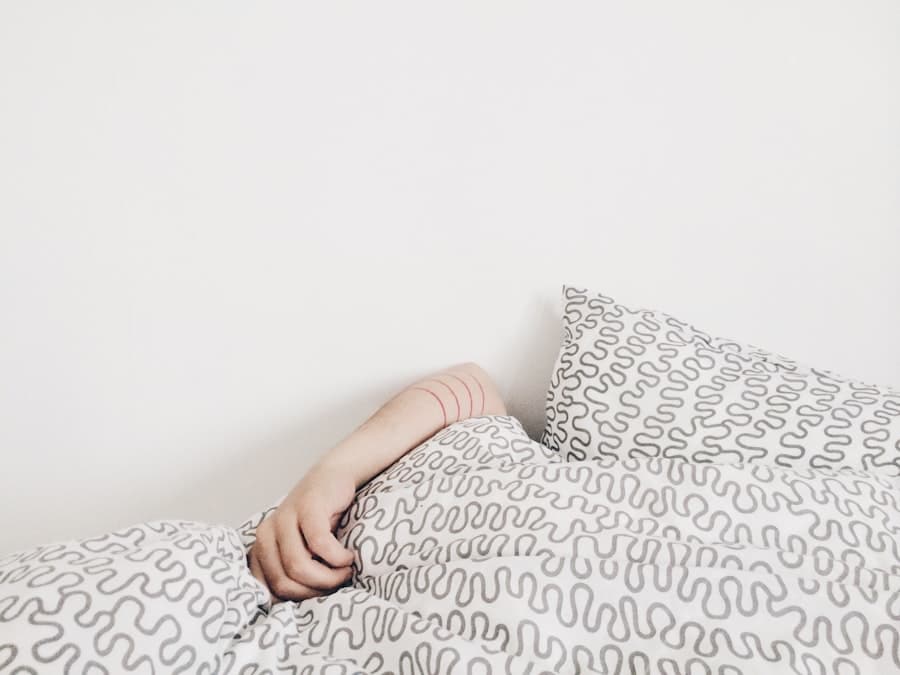When you consider using Ambien, it’s crucial to understand the potential risks associated with this popular sleep medication. While it can be effective for short-term treatment of insomnia, it is not without its drawbacks. One of the most significant concerns is the possibility of developing a dependency on the drug.
Many individuals find themselves relying on Ambien to fall asleep, which can lead to a cycle of increased dosage and tolerance. This dependency can create a situation where you feel unable to sleep without the medication, making it difficult to break free from its grasp. Moreover, Ambien can cause a range of side effects that may not be immediately apparent.
These can include dizziness, daytime drowsiness, and even memory lapses. Some users report engaging in activities while not fully awake, such as cooking or driving, which can pose serious risks to your safety and well-being. It’s essential to weigh these potential dangers against the benefits of using Ambien.
Consulting with a healthcare professional can provide you with a clearer understanding of whether this medication is appropriate for your specific situation.
Key Takeaways
- Ambien carries risks of dependence and withdrawal, as well as potential side effects such as drowsiness and dizziness.
- Natural remedies for better sleep include herbal teas, aromatherapy, and relaxation techniques like meditation and deep breathing exercises.
- Lifestyle changes to improve sleep quality include maintaining a consistent sleep schedule, avoiding caffeine and electronics before bed, and getting regular exercise.
- Cognitive Behavioral Therapy for Insomnia (CBT-I) is a highly effective treatment that focuses on changing thoughts and behaviors related to sleep.
- Over-the-counter sleep aids like melatonin and valerian root can be helpful for occasional sleep disturbances, but should be used with caution and under the guidance of a healthcare professional.
Natural Remedies for Better Sleep
If you’re looking for alternatives to pharmaceuticals like Ambien, natural remedies can offer a gentler approach to improving your sleep quality. Herbal supplements such as valerian root, chamomile, and lavender have been used for centuries to promote relaxation and enhance sleep. These natural options often come with fewer side effects compared to prescription medications, making them an appealing choice for many individuals.
You might find that incorporating these herbs into your bedtime routine—whether through teas, essential oils, or capsules—can help you unwind and prepare for a restful night. In addition to herbal remedies, lifestyle practices such as mindfulness and meditation can significantly improve your sleep quality. Engaging in mindfulness exercises before bed can help calm your mind and reduce anxiety, making it easier for you to drift off to sleep.
Techniques such as deep breathing or progressive muscle relaxation can also be beneficial. By focusing on your breath and letting go of the day’s stresses, you create a mental space conducive to sleep. Experimenting with these natural remedies may lead you to discover what works best for your body and mind.
Lifestyle Changes to Improve Sleep Quality

Making certain lifestyle changes can have a profound impact on your sleep quality. One of the most effective adjustments you can make is establishing a consistent sleep schedule. Going to bed and waking up at the same time every day helps regulate your body’s internal clock, making it easier for you to fall asleep and wake up feeling refreshed.
This consistency signals to your body when it’s time to wind down and when it’s time to rise, promoting a healthier sleep cycle. Another important factor is your diet. What you consume throughout the day can influence how well you sleep at night.
Limiting caffeine and alcohol intake, especially in the hours leading up to bedtime, can help improve your sleep quality. Instead, consider incorporating foods rich in magnesium and tryptophan into your meals, such as nuts, seeds, and turkey. These nutrients can promote relaxation and support better sleep.
By making these lifestyle changes, you may find that your overall well-being improves alongside your sleep.
Cognitive Behavioral Therapy for Insomnia
Cognitive Behavioral Therapy for Insomnia (CBT-I) is an evidence-based approach that has gained recognition as an effective treatment for chronic sleep issues. This therapy focuses on identifying and changing negative thought patterns and behaviors that contribute to insomnia. By working with a trained therapist, you can learn strategies to address the underlying causes of your sleep difficulties rather than simply treating the symptoms.
CBT-I typically involves several components, including sleep education, cognitive restructuring, and behavioral interventions. You may find yourself keeping a sleep diary to track patterns and identify triggers that disrupt your rest. Through this process, you’ll develop healthier sleep habits and learn techniques to manage anxiety related to sleep.
Many individuals who undergo CBT-I report significant improvements in their ability to fall asleep and stay asleep, making it a valuable alternative to medications like Ambien.
Over-the-Counter Sleep Aids
If you’re seeking immediate relief from sleeplessness but prefer not to use prescription medications, over-the-counter (OTC) sleep aids may be an option worth considering. These products often contain ingredients like diphenhydramine or doxylamine, which are antihistamines that induce drowsiness. While they can be effective for occasional sleeplessness, it’s important to use them judiciously and not rely on them as a long-term solution.
Before trying an OTC sleep aid, take the time to read the label carefully and understand the potential side effects. Some individuals may experience grogginess the next day or have difficulty waking up after using these products. Additionally, prolonged use of OTC sleep aids can lead to tolerance or dependency, similar to prescription medications.
It’s wise to consult with a healthcare professional before incorporating these aids into your routine, ensuring that they align with your overall health goals.
Prescription Alternatives to Ambien

If you find that Ambien isn’t the right fit for you due to its risks or side effects, there are several prescription alternatives available that may better suit your needs. Medications such as Lunesta (eszopiclone) or Sonata (zaleplon) are designed to help with sleep onset and maintenance while potentially offering different side effect profiles compared to Ambien. Discussing these options with your healthcare provider can help you determine which medication might be more appropriate based on your specific circumstances.
In addition to traditional sedatives, some antidepressants like trazodone are sometimes prescribed off-label for insomnia due to their sedative properties. These alternatives may provide relief without some of the more severe side effects associated with stronger sleep medications. Your healthcare provider can guide you through the various options available and help you make an informed decision about which path is best for achieving restful nights.
Relaxation Techniques for Better Sleep
Incorporating relaxation techniques into your nightly routine can significantly enhance your ability to fall asleep and stay asleep throughout the night. Practices such as yoga or gentle stretching can help release tension in your body and prepare you for rest. Engaging in these activities before bedtime allows you to transition from the busyness of the day into a more peaceful state of mind.
Another effective relaxation technique is guided imagery or visualization exercises. By picturing calming scenes or engaging in positive affirmations, you can create a mental environment that promotes tranquility and relaxation. Listening to soothing music or nature sounds can also aid in this process, helping you drift off more easily.
Experimenting with different relaxation techniques will allow you to discover what resonates most with you and enhances your overall sleep experience.
Creating a Sleep-Inducing Environment
The environment in which you sleep plays a crucial role in determining how well you rest each night. To create a sleep-inducing atmosphere, start by ensuring that your bedroom is dark, quiet, and cool. Consider using blackout curtains or an eye mask to block out light, while earplugs or white noise machines can help drown out disruptive sounds.
A comfortable mattress and pillows tailored to your preferences are also essential components of a restful sleeping space. Additionally, consider incorporating calming scents into your environment through essential oils or scented candles. Lavender is particularly known for its relaxing properties and can help signal to your body that it’s time to wind down.
Establishing a bedtime routine that includes dimming lights and engaging in calming activities will further reinforce this environment conducive to sleep. By taking these steps, you’ll create a sanctuary that promotes relaxation and enhances your overall sleep quality. In conclusion, while medications like Ambien may offer short-term relief from insomnia, understanding their risks is essential for making informed decisions about your health.
Exploring natural remedies, lifestyle changes, cognitive behavioral therapy, over-the-counter options, prescription alternatives, relaxation techniques, and creating a conducive sleeping environment can all contribute significantly to improving your sleep quality. By taking a holistic approach to managing insomnia, you empower yourself with various tools and strategies that promote restful nights and rejuvenated mornings.
If you are looking for more information on addressing safety concerns and misconceptions related to sleep aids, you may want to check out this article. It provides valuable insights into the potential risks and benefits of using sleep aids like Ambien. Additionally, learning about the importance of proper nutrition and the role of vitamin D in promoting better sleep can also be beneficial. For more details on these topics, you can read the articles on vitamin D and proper nutrition.
FAQs
What are the common side effects of Ambien?
Common side effects of Ambien include drowsiness, dizziness, headache, nausea, and diarrhea. It can also cause more serious side effects such as memory loss, sleepwalking, and allergic reactions.
What are some effective alternatives to Ambien for better sleep?
Some effective alternatives to Ambien for better sleep include cognitive behavioral therapy for insomnia (CBT-I), melatonin supplements, valerian root, and relaxation techniques such as meditation and deep breathing exercises.
Is it safe to use over-the-counter sleep aids as an alternative to Ambien?
Over-the-counter sleep aids can be used as an alternative to Ambien, but it is important to use them as directed and to be aware of potential side effects. It is always best to consult with a healthcare professional before using any sleep aid.
What lifestyle changes can help improve sleep quality without the use of Ambien?
Lifestyle changes that can help improve sleep quality without the use of Ambien include maintaining a regular sleep schedule, creating a relaxing bedtime routine, avoiding caffeine and electronic devices before bed, and creating a comfortable sleep environment.
Are there any natural remedies that can help with sleep without the use of Ambien?
Yes, there are several natural remedies that can help with sleep, including melatonin supplements, valerian root, chamomile tea, and lavender essential oil. It is important to consult with a healthcare professional before using any natural remedies, especially if you have any underlying health conditions or are taking other medications.






